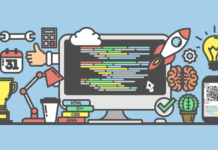The rise of generative AI tools like ChatGPT has created a complex landscape for colleges and universities, forcing them to grapple with the potential benefits and challenges of this technology. As students increasingly embrace AI tools to assist with coursework and research, institutions are developing policies and strategies to guide the responsible and effective integration of AI into education. This article examines how some of the nation’s leading colleges and universities – from the Ivy League to tech and research institutions – are approaching the use of generative AI, highlighting the evolving policies, partnerships, and approaches shaping the future of higher education.
The Rise of AI in Academia: Student Adoption and Institutional Responses
The use of generative AI is rapidly increasing among college students. A recent Digital Education Council survey revealed that over half of students use AI tools like ChatGPT, Grammarly, and Microsoft CoPilot weekly. While these tools offer potential benefits—streamlining research, assisting with writing, and even helping with college admissions essays—many students report feeling unprepared to use and understand AI effectively. This disconnect between student adoption and institutional readiness is prompting a need for clear guidelines and training.
AI Partnerships vs. Institutional Policies
The growing popularity of generative AI has spurred a push from AI companies to establish partnerships with colleges and universities. OpenAI, Google, Anthropic, and Microsoft have all launched educational products, including chatbot tutor modes, licensing options, and AI accelerators. However, these partnerships must be balanced against the need for robust institutional policies.
- OpenAI Partnerships: OpenAI has established ChatGPT partnerships with a wide range of institutions, including Harvard Business School, University of Pennsylvania’s Wharton College, Duke, UCLA, UC San Diego, UC Davis, Indiana University, Arizona State University, Mount Sinai’s Ichan School of Medicine, and the entire California State University (CSU) System. The CSU collaboration is one of the largest ChatGPT deployments to date.
- Google’s Approach: Google offers its Google AI Pro plan and Gemini chatbot to college students for free and is currently involved in over 1,000 U.S. higher education institutions through its AI for Education Accelerator. This program provides free access to AI products and training certificates and includes a partnership with California Community Colleges, offering access for 2 million students and faculty.
- Anthropic’s Cautious Strategy: Anthropic, the maker of chatbot Claude, is taking a more measured approach. Publicly announced partnerships include Northeastern University, London School of Economics (LSE), the University of San Francisco Law School, Northumbria University, Champlain College, and Breda University of Applied Sciences. Anthropic highlights that many more institutions are quietly using Claude.
- Microsoft’s Suite of Tools: Microsoft offers AI tools like CoPilot for Web and CoPilot in 365 through its 365 office suite, and provides free access to Microsoft CoPilot for students.
Varying Approaches to AI Policies: From the Ivy League to Research Institutions
The specifics of AI policies differ widely across institutions. While many colleges are experimenting with partnerships and integrations, the overarching guidance often falls under academic integrity or honesty policies.
Ivy League Institutions
The Ivy League schools have taken a range of approaches:
- Yale: Yale has launched the AI Clarity platform and chatbot to help students access AI tools. The university encourages students to avoid AI as a replacement for learning but emphasizes that each course sets its own policies regarding AI use.
- Princeton: Princeton restricts AI use to Microsoft CoPilot chat and Adobe’s AI image generation tools, falling under its Rights, Rules, and Responsibilities policy which prohibits using non-Princeton AI tools for academic requirements.
- Columbia: Columbia has licensed ChatGPT and issued an overarching generative AI policy for staff and students. The policy explicitly prohibits the unauthorized use of AI for assignments and exams, treating it similarly to unauthorized assistance or plagiarism.
Public and Private Systems
- Duke University: Duke offers unlimited access to the ChatGPT default model and allows students to migrate personal accounts to student accounts. The university considers unauthorized use of generative AI as cheating.
- California Colleges: The California system presents a complex picture. The California Community College system has a public partnership with Google, while the California State University (CSU) system has a significant collaboration with OpenAI. Individual schools within these systems have their own AI policies. The CSU allows schools to choose how they deploy ChatGPT, and students can access general AI resources through the AI Commons website.
- University of California (UC) System: UC schools have adopted unique strategies. UC San Diego licenses both ChatGPT and its own AI assistant, TritonGPT, which uses Meta’s Llama model. UC Irvine has built its own AI, ZotGPT, alongside contracting with CoPilot and Gemini.
Tech and Research Institutions
- Massachusetts Institute of Technology (MIT): MIT has approved licenses for Google Gemini and Notebook LM, and Microsoft CoPilot, making them accessible to all students. ChatGPT is available only for faculty. MIT’s policies require disclosure of AI use for all academic and research-related activities.
- California Institute of Technology (CalTech): CalTech offers CoPilot to students and is reviewing ChatGPT for faculty and staff, warning users of risks associated with using unlicensed AI tools.
- Georgia Tech: Georgia Tech approves the full suite of Microsoft AI tools but has not yet approved ChatGPT for student use. DeepSeek is entirely prohibited.
- Students are the Drivers of Change
Beyond institutional policies, students are becoming increasingly active in shaping the AI landscape. Student-led AI clubs and communities have emerged across campuses, and students are partnering with companies like OpenAI to demo new tools and provide feedback. This student-driven engagement is a powerful force in accelerating the adoption and responsible use of AI in education.
Navigating the Future: Key Considerations for Colleges
As generative AI continues to evolve, colleges and universities face ongoing challenges and opportunities. Key considerations for institutions include:
- Establishing Clear Policies: Institutions need to develop clear, accessible policies regarding the use of generative AI, balancing the potential benefits with the need to uphold academic integrity.
- Providing Training and Support: Offering training and support for both students and faculty is essential to ensure that AI is used effectively and responsibly.
- Addressing Ethical Concerns: Colleges need to address ethical concerns related to AI, including issues of bias, privacy, and plagiarism.
- Embracing Innovation: Institutions should embrace the potential of AI to enhance teaching and learning, while remaining mindful of the need to foster critical thinking and creativity.
The integration of generative AI into higher education is a dynamic process. As colleges and universities continue to navigate this evolving landscape, collaboration, clear policies, and a focus on student engagement will be crucial to maximizing the potential of AI while upholding the values of academic excellence




































































